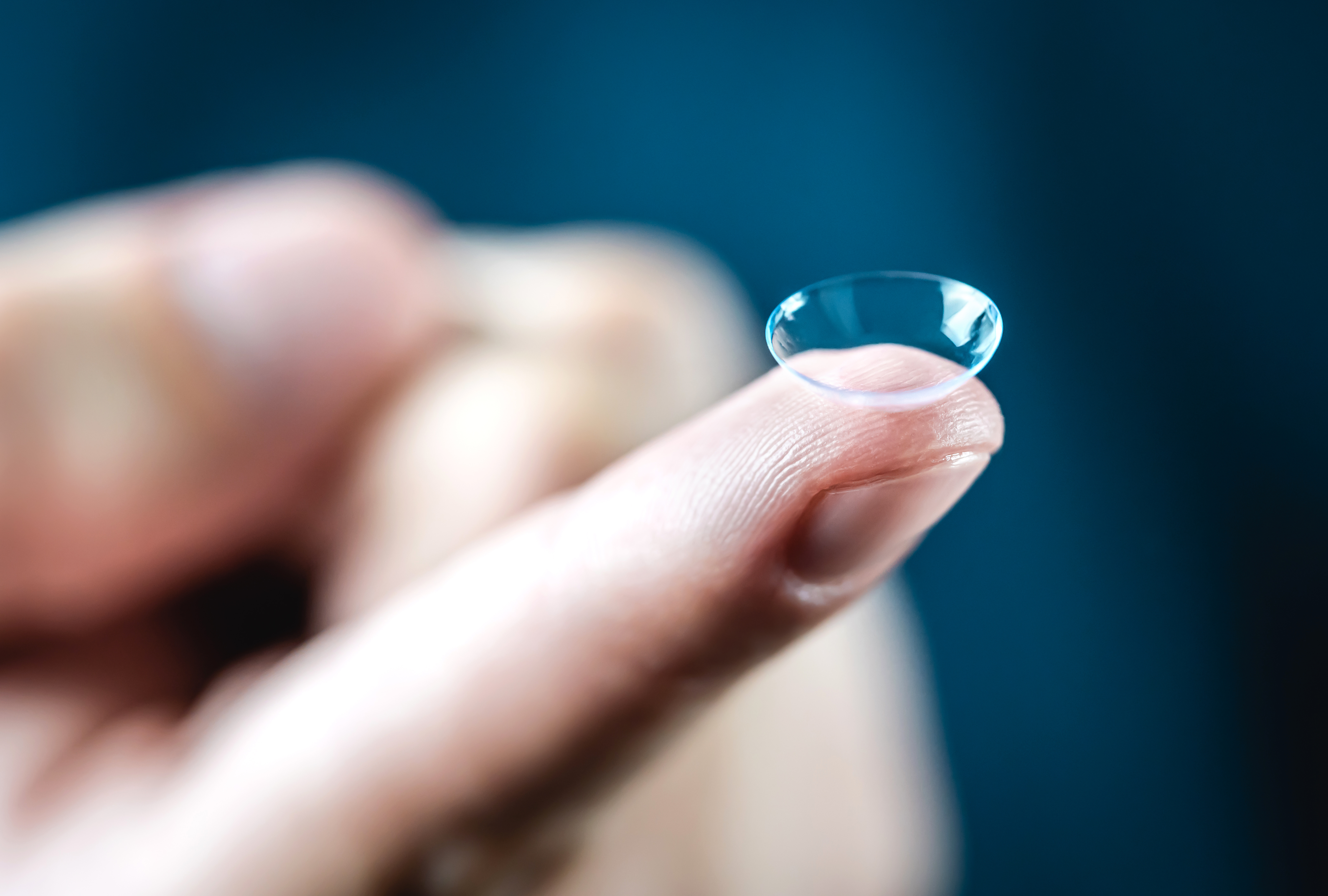To help our members get access to CPD, our Seminar Series is now being delivered online.
Join expert speakers as they deliver presentations on a variety of current clinical topics at the ACO Seminar Series. Free to members, these events are held throughout the year providing an opportunity to expand your knowledge. Members can also access the lectures online one week after the event free of charge.
Neuro-opthalmology & Neuro-optometry
Dr Rahul Chakrabarti & Clare Campitelli
Wednesday 18 October 2023
7:00pm to 9:00pm AEST
2.5 T CPD hours
Neuro-ophthalmology: how to diagnose the most common presentations to optometry (a case-based presentation)
Presented by Dr Rahul Chakrabarti
Diplopia is an infrequent but important symptom presenting to optometry practice that requires careful assessment and triage. This case-based presentation from Dr Rahul Chakrabarti will discuss the most common presentations involving diplopia that might present to optometry practice, including symptoms, signs, and how best to clinically assess these patients.
The need for careful history taking will be emphasised as one strategy to ensure that these cases can accurately be triaged into those that do or do not require onward referral for medical investigations, and how urgently medical assessment might be required.
Neuro-optometry: how to manage the most common presentations to optometry
Presented by Clare Campitelli
Following appropriate investigation, diagnosis and treatment of a neuro-ophthalmic condition, patients will rely on optometrists to provide solutions to their diplopia, blurred vision and other visual changes which can result. This is crucial to restoring a high quality of vision to provide solutions for work, home life and recreation, and is important to maintaining quality of life for these patients.
This presentation from experienced optometrist Clare Campitelli, who provides neuro-rehabilitatative vision care will discuss the assessment and management of patients who present with visual consequences from a variety of neurological conditions such as cranial nerve palsies, concussion and traumatic brain injury.
Beyond Dendrites: recurrent corneal HSV diseases
Associate Professor Chameen Samarawickrama
Tuesday 19 September 2023
7:30pm to 8:30pm AEST
1.5 Ti CPD hours
Optometrists are familiar with the classical appearance of corneal epithelial dendrites as the signature lesion of keratitis caused by herpes simplex virus (HSV). Recurrent HSV keratitis is one of the most frequent worldwide causes of corneal blindness, in both high and low health resource settings.
This presentation will focus on the diagnosis and optimal treatment of stromal and endothelial HSV keratitis, and HSV keratouveitis, together with detailed analysis of differential diagnosis. The important corneal signs that cannot be dismissed in a patient with a history of HSV keratitis, either recent or distant, will highlight the potentially destructive complications of neurotrophic or geographic ulcers if treatment is delayed. The importance of risk reduction strategies such as topical corticosteroid and/or oral antiviral therapy aiming to prevent recurrent episodes of HSV keratitis will be discussed, including peri-operative care associated with cataract surgery. Solutions regarding the potential surgical rehabilitation of corneal scarring from HSV keratitis will also be briefly discussed.
Low Vision Update
Matthew Walker & Mae Chong
Wednesday 9 August 2023
7:30pm to 9:00pm AEST
Orientation and mobility services for patients with low vision: What optometrists should know
While optometrists are familiar with various optical and lighting aids to facilitate improved quality of life for patients having low vision, referrals for orientation and mobility are sometimes overlooked in established low vision referral pathways. Orientation and Mobility (O&M) is the specialist field with the aim of enhancing the independence, safety and efficiency of travel for people who are blind or have low vision. Orientation and Mobility (O&M) specialists work with people of all ages, tailoring interventions to suit the needs of the individual client, including people with additional complexities such as health conditions or multiple impairments. This presentation will examine the common mobility issues for people with low vision, describe the process of referral, assessment and training provided by O&M specialists to illustrate the positive impact that this intervention can have in the lives of patients living with low vision. Optometrists will leave the presentation with an improved understanding of when and how to refer patients for O&M services.
Blind sports and classification: optometry assisting the next generation of Para-athletes
Participation in parasports can be beneficial to many vision impaired patients. Sports make various modifications to their codes in order to enable meaningful participation by vision impaired athletes. There are a number of sporting bodies involved in blind parasports and the sports operate at various levels, from recreational to professional. Classification of athletes into groups of similar disability enables fairer competition and optometrists can aid in this process either as classifiers or practitioners who provide information in a Medical Diagnostics Form.
Amblyopia – What’s Next?
Elisse Higginbotham
Tuesday 11 July 2023
7:30pm to 8:30pm AEST
Beyond detection and the basics, what comes next? How long should treatment last? How do you know if treatment is working? What new options might there be, and how well do they work? What are the factors that determine success in older children, and how do you know when to stop treatment. Practical tips on assessing amblyopia in the long term, and danger signs and mimickers to looks out for.
Neuroadaptation
Dr Alex Ioannidis
Tuesday 13 June 2023
7:30pm to 8:30pm AEST
Without overlooking physics and chemistry, as optometrists we often think of ourselves as biologists or even neurobiologists. But are we really just neuroadaptation specialists?
Neuroadaptation is the process by which the brain is able to adjust to a new input, substance or condition. Neuroadaptation in the visual system can be either maladaptive or disruptive, such as aniseikonia symptoms with multifocal spectacle lenses, or can be harnessed to achieve functional visual solutions, such as monovision in contact lens wear.
This presentation will also discuss how the visual system interacts with other physiological and psychological inputs during neuroadaptation. Using insights derived from the integration of new intraocular lens technologies into routine clinical practice, this analysis will describe common neuroadaptive challenges including new additive visual stimuli, such as floaters, and subtractive visual stimuli, such as visual acuity and visual field losses. Clinical insights will highlight how as optometrists we can refine our approach to managing neuroadaptation to maximise the clinical benefit for both patients and practitioners.
Artificial Intelligence and Glaucoma: Enhancing Patient Care in Optometry
Tim Murphy
Tuesday 18 April 2023
7:30pm to 8:30pm AEST
The artificial intelligence (AI) in chatGPT has made many creative professionals such as writers and editors nervous for their long-term job stability. Does the use of AI in glaucoma diagnosis and management mean that optometrists should have similar shivers of insecurity concerning the integration of AI into everyday glaucoma clinical routines? Tim Murphy is exploring the clinical utility and adaptability of AI in glaucoma care through his PhD studies at Deakin University and will share his insights into why AI can help not hinder the continuing clinical development of optometry as a profession.
Climate Change and Eye Care
Mitasha Yu
Tuesday 21 March 2023
7:30pm to 8:30pm AEDT
Note: Due to high interest in this important topic, this seminar is open to non-members. Non-members will be required to self-log CPD points and will not have access to additional CPD from MCQs.
Register here.
Climate change is affecting every aspect of human health, and eye care is no exception. Climate change could drag more than 100 million people back into extreme poverty by 2030, with much of this leading to negative impacts on health. Health impacts resulting from climate change include the effect of extreme weather events, worsening air quality, changes in the spread of infectious diseases, threats to food and water quality and supply, and the secondary impact of climate change events on our mental health. Optometrists and eye care professionals need to have an awareness of how climate change can affect their everyday practice, and the simple measures that optometrists can take now to reduce the impact of climate change and build their resilience to the effects of climate change.
ACO Case study presentations
Georgina Liapis, Scott Panozza, Christa Sipos-Ori
Tuesday 21 February 2023
7:30pm to 8:30pm AEST
The ACO’s commitment to provide high impact public eye care that is accessible and welcoming to all is reflected in our diverse and complex patient base. These case studies are presented by ACO optometrists Georgina Liapis, Scott Panozza and Christa Sipos-Ori, detailing the optometric management of transient ischaemic attack, post-graft RGP fitting, and differential diagnosis of constricted visual fields respectively.
General Information
- Registration:
Please email cpd@aco.org.au for Zoom link - Time: from 7.30pm (Melbourne)
- Address:
On-line via Zoom - Cost:
Free for ACO Members













